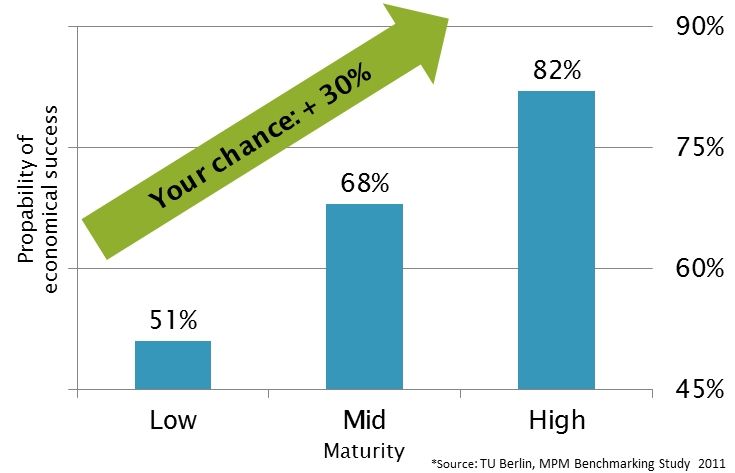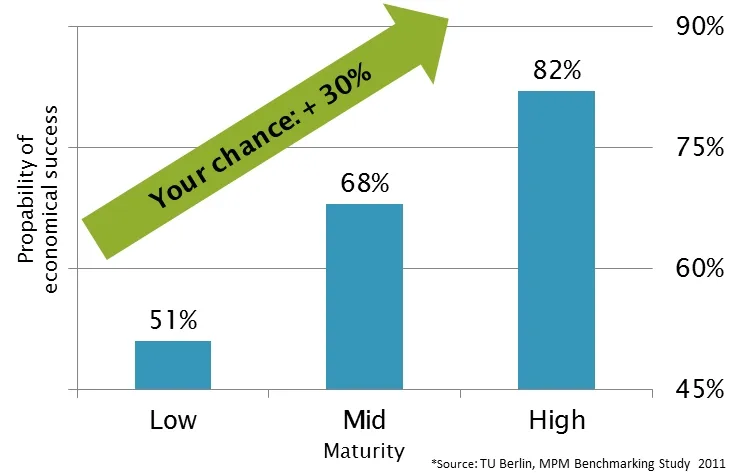50% of Projects Not Successful in Complex Landscapes
March 2, 2012
A TU Berlin study found that half of all projects fail in complex landscapes with low organisational maturity. The good news: maturity boosts success rates significantly.
I write about this because organisations often underestimate the impact of maturity. With clarity, structure and integrated program management, complexity becomes manageable – and projects more successful.

Did you know how many projects are not successful caused by low maturity in managing complex landscapes?
The Technical University of Berlin (Chair Prof. Dr. Gemuenden) discovered in last year’s study that approx. 50% of all projects fail in complex landscapes. This is where a high degree of dependencies between the projects is given and the organization’s maturity of managing these landscapes is low.

Here’s the good news: You don’t need to bury your head in the sand. If you are able to increase the organisation’s maturity in managing such complex scenarios, you can improve project success probability by approx. 30% (according to the study).
In the coming weeks I will publish a set of posts that will enable you to set up a basic environment for proper program management. This will provide the foundation for increasing maturity.
If this article caught your attention, stay tuned here. In addition, I will talk about this subject in a session at the Microsoft Project Conference (#mspc12) in Phoenix, AZ, March 20–22 (abstract for session #pc310).
What’s next: Learn about our experience of how program management works in matrix organizations.
Ingo Meironke, PMP – Manager at Campana & Schott - @meiroTweet